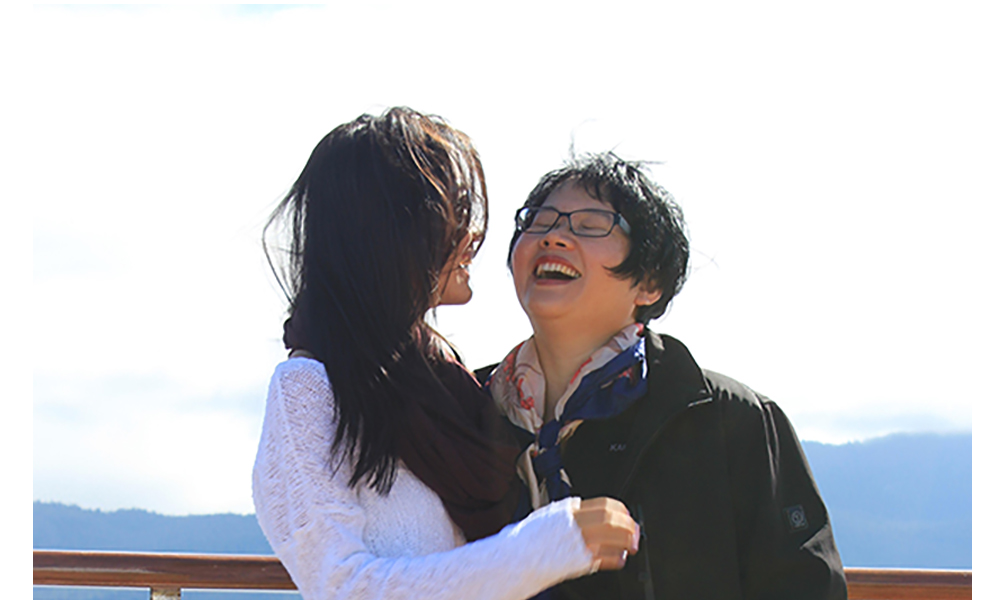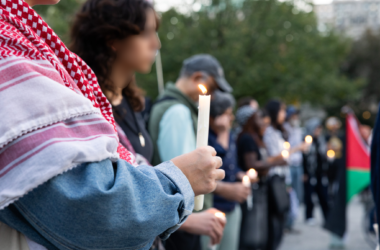When I came to McGill, I was the epitome of a first-year—overly excited, carefree, and ready to meet new people from all over the world. After a year of new experiences and fond memories, things took a turn around Halloween of second year when I was just 19 years old. At the time, my biggest concern was deciding what costume I should wear and which parties to attend, but harsh reality hit me when I got a phone call out of the blue—it was my uncle, who told me I had to go home to Toronto immediately. My mother was hospitalized. I vividly remember my stomach dropping and my heart sinking, as I thought, “Wait what? I was texting Mom yesterday and she’s not sick…is this serious?”
My mother passed away four days later. Not once in that time did I see her open her eyes; she was in a deep coma with a brain aneurysm and never regained consciousness. What started off as a headache ended up taking her life. The worst part about a dormant brain aneurysm is that it lies there silently until the day it decides to rupture. Even harder was the fact that no one in my family had a chance to say a proper goodbye. Ultimately, it left me completely broken on the inside.
The morning of the fourth day was the worst of my life. My sister Emily, who was 21 at the time, and I had returned to Ottawa and Montreal to return to school and our normal routines. I woke up to 15 missed calls from Emily—my mom had just suffered another stroke and we had to quickly decide between two equally grim options: Surgery–which not only has a 10% survival rate, but would leave her unable to remember people, walk, eat, or dress by herself–or to give her medication to numb the pain as she progresses to the end of her life. At this point we knew that no matter which option we chose, my mom’s death was on the horizon.
On the flight back to Toronto, I cried silently, realizing that this was the end; my mom was really going to die. A few days ago, I had been planning my Halloween costume and now I was left to plan my own mother’s funeral. It was a blur of emotions: Chaos, desperation, hopefulness turned to hopelessness, and eventually, sadness. I wanted to punch something, bawl my eyes out, throw a plate at the wall; do anything to stop feeling at all. There it was: My worst nightmare was turning into my reality.
Now, when I reflect upon my life, I see it in two distinct periods: Life with my mom and life without my mom. This division represents the unwelcome change that seeped into every domain of my life. Nothing was the same anymore—birthdays, Christmases, school, my home, my family, even myself—all realms of my life had changed.
[metaslider id=73681]
Still, I soon learned that time stops for no one and that I have to keep running, no matter how much I need to stop and gasp for air. I wasn’t going to let myself wallow in my misery and become a pitiful ball of sadness, so I did what I thought was best for myself at the time: I went back to school, held my chin up, and vowed that I would continue living the university dream my mom always wanted but never got to experience for herself. I dove right back in and distracted myself: I joined extracurriculars I wasn’t particularly ready for, managed to secure a second minor in a new faculty, took up summer school, and then went on exchange to Europe. In hindsight, I realized I never gave myself the appropriate time to rest and grieve properly.
Instead, my grief manifested as neglect towards myself, masked by a distorted illusion of feeling invincible. I would blast music with my headphones on to a deafening level, just to not hear my own thoughts in my head. I would drink past the point where I knew I should stop because my own wellbeing didn’t seem so important to me anymore. I couldn’t bring myself to focus on my studies the way I used to because I knew that the worst that would happen would be to fail. In my mind, I believed that no struggle I can go through now could remotely equate to the struggle of having to live life under the shadow of such a loss.
The result of this wasn’t pretty to say the least. I had my fair share of breakdowns on campus, alcohol-induced blackouts, failed classes, and unsatisfactory counselling sessions. I would be out at a party, but my mind would somehow wander to the fact that my mom was still dead. While on exchange I would watch the Eiffel Tower sparkle and wish that she had the chance to see this for herself. I would do a double take at every mother-daughter duo on the street and want to shout out, “You don’t know how lucky you are!”
Don’t get me wrong, I am lucky to have had a privileged upbringing full of opportunities, encouragement, and love. I am eternally grateful for my supportive family and friends, and I cannot begin to express how incredibly blessed I feel to have them in my life, especially after the loss of my mother.
It makes me sad to think that the years I’ll live without my mom will probably outnumber the years I had with my mom. I’ve experienced more sadness, anger, and heartbreak than I’d like to these past few years, but throughout all of this, I’ve gained a newfound appreciation of my life and for the people in it, especially now that I know what it’s like to have a loved one disappear in a blink of an eye. We tend to take things for granted because we think they’ll be there forever, but life is frail and we aren’t as invincible to adversity as we’d like to think. Although you can’t control what happens to you, you can control how you choose to face it, and I refuse to be a victim of my pain and suffering. Instead, I choose to be the best possible person I can be. One day I’ll get off this roller coaster, and when I do, I’ll be someone who is able to truly live life to its fullest.
Dealing with the death of your loved ones is never easy, regardless of what age you are and whether you saw it coming or not. I hope that by sharing my story, it will be able to instill feelings of hope, empowerment, support and acceptance. Whatever kind of adversity, pain, or sadness you may be experiencing in your life, know that you are not alone.
If you are struggling with the loss of a loved one, there are many group therapies offered by Counselling and Mental Health Services at McGill, including the Living with Loss Support Group, which helped me through my own experience and allowed me to meet other students going through similar adversities.






